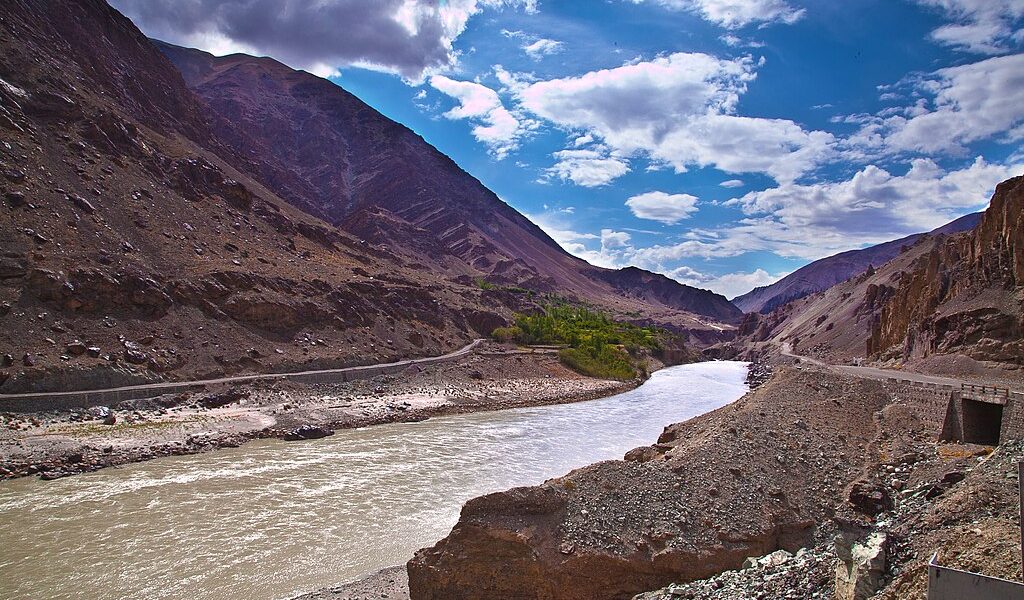Kashmir: India reduces water flow to Pakistan, while attacks on Indian Muslims increase
India has suspended the Indus Water Treaty, following a terror attack in Pahalgam (Indian Kashmir), reactivating hydroelectric projects left unfinished because of the agreement with Pakistan. Meanwhile, violence against Muslims and Kashmiris is growing, victims of assaults and threats in several Indian cities.
News Delhi/Islamabad (AsiaNews) – As tensions with Pakistan grow after a terror attack in Kashmir in which 26 people died, India has begun work on the Baglihar and the Salal dams to increase water storage in the Himalayan region.
The first dam was built in 1987 in Ramban district while the second was built between 2008 and 2009, in Reasi district , but neither came into operation because of the 1960 Indus Water Treaty that ensures water supplies to 80 per cent of Pakistani farms.
India recently suspended the agreement reducing the flow of water from the Chenab River, which travels towards Faisalabad before reaching Multan.
Last Thursday, state-run NHPC Ltd, India's biggest hydropower company, began the “reservoir flushing” process to remove sediment, sources told Reuters, emptying the reservoir of most of its sediment-laden water.
Sediment build-up is one of the main causes of lower energy production. Both dams were working below capacity because Pakistan had prevented the reservoirs from being emptied.
"Flushing is not a common thing because it leads to a lot of water wastage," a source said. Even so, "Downstream countries are expected to be informed in case it leads to any inundation”.
According to the treaty, which regulates water sharing from six rivers in the Indus basin, flow through the Baglihar Dam was only possible in August, when more water is available from melter glaciers.
Building the dams (less than a dozen in all on the rivers that reach Pakistan from Kashmir) required considerable diplomatic efforts between the two South Asian countries, which have repeatedly clashed over the decades for control of Kashmir and its resources.
Many fear that the suspension of the Indus Water Treaty could lead India to independently manage hydroelectric projects on shared rivers, with the risk that Pakistan will run out of water for agriculture.
Other experts believe that India is just politically posturing and will not carry out any threat because it does not have the necessary infrastructure to retain large volumes of water such as those that Pakistan usually receives.
Growing ethnic and religious tensions
Meanwhile, a series of targeted attacks against Kashmiris have taken place in various parts of India.
On 23 April (the day after the Kashmir attack), the Hindu extremist group Raksha Dal announced punitive patrols against Kashmiri Muslims in Dehradun, Uttarakhand, openly threatening violence against those who did not leave the city by 10 am the next day.
In other incidents, a poster appeared saying, “Dogs and Muslims (jihadis) not allowed” at the Bidhan Chandra Krishi Viswavidyalaya Agricultural University, in Kalyani, West Bengal, while a pregnant Muslim woman in Kolkata reported that her doctor turned her away because of her religion.
On 23 April, two Muslim cousins were targeted in a restaurant in Agra, Uttar Pradesh; one, Gulfam of 27, was shot dead; the other, Saif Ali, 25, was seriously injured. A video released shortly after shows two gunmen claiming responsibility for the attack on behalf of the Kshatriya Gau Raksha Dal group, and threatening to kill 2,600 people in response to the Pahalgam bombing.
In Mohali, Punjab, some Kashmiri students attending Rayat Bahra University reported harassment by nearby residents.
In Varanasi, another episode on 28 April has further aggravated the climate of violence and Islamophobia following the attack in Pahalgam.
Six men attacked a 16-year-old Muslim boy, Rehan, near the Dashashwamedh Ghat (steps leading to the Ganges River).
After asking his name, they seized the boy, who is employed as a helper in a clothing store, taking him inside the office of the Ganga Sewa Nidhi – an organisation that deals with evening rituals on the Ganges, and brutally beat him for two hours while insulting his religion.
The boy eventually fainted, waking up on the steps of the ghat; limping, he managed to get home, and then hospitalised with clear signs of torture.
Two days later, police removed him from hospital, and took him into custody at a local station, where he was held for 12 hours without food or water, questioned by the Anti-Terrorism Squad and the Intelligence Bureau over his potential links to Islamic extremist groups.
Rehan was released only thanks to the intervention of activists and lawyers, but he will have to continue to report regularly to the police station. Meanwhile, none of his attackers have been arrested.
“It is extremely sad and worrying that the unfortunate massacre in Pahalgam has unleashed terror on Muslims," said Fr Anand Mathew of the Souhard Peace Centre, who relayed the story. “People with a terrorist and Islamophobic mindset are targeting innocent Muslims.”
(Nirmala Carvalho contributed to this article)
07/05/2025 20:58
07/05/2025 15:16







.png)










